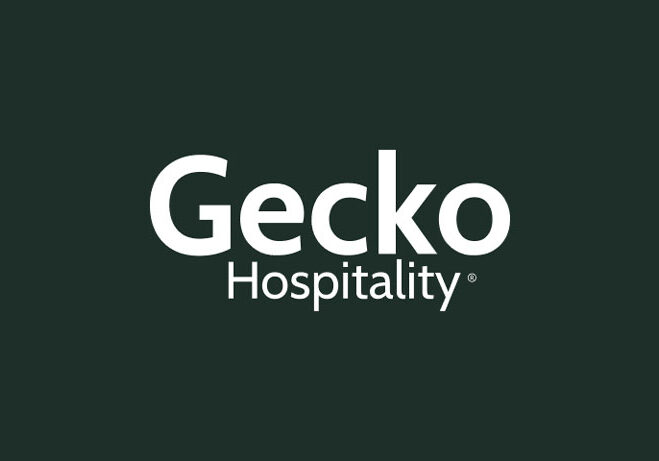
Job Interview: Restaurant Manager’s Opinion of Gen Z’s Work Ethic
How to Show Hospitality Managers Your Strengths in Job Interviews and Resumes
Landing a restaurant or hotel job isn’t just about having experience—it’s about proving you’ll make the team stronger from day one. Whether you’re a front-desk associate, a line cook, or an aspiring manager, hospitality employers look for people who can handle pressure, communicate clearly, and deliver exceptional guest experiences. The challenge is learning how to show those strengths effectively in your resume and interviews.
Here’s how to demonstrate your value so hospitality managers can see exactly what you bring to the table.
1. Tell a Story, Don’t Just List Tasks
Most resumes read like job descriptions: “Handled guests,” “Took orders,” “Checked in customers.” Those statements tell what you did, not how well you did it. Managers are drawn to stories that show results.
Instead of: “Served customers in a fast-paced environment.”
Try: “Delivered 5-star service to 150 guests per shift while maintaining 98% guest satisfaction scores.”
Numbers, outcomes, and specific actions make your achievements real. Every hotel and restaurant tracks performance metrics—show that you understand what success looks like.
Practice telling your story.
2. Focus on Transferable Skills
Hospitality managers value people who can think fast, adapt, and communicate across teams. Even if you’re new to hospitality, emphasize skills that transfer directly. HR, or managers, are looking for candidates that can communicate well in the job interview.
Examples include:
-
Customer service: Experience resolving complaints or exceeding guest expectations.
-
Teamwork: Collaborating in busy environments like retail, catering, or events.
-
Time management: Handling multiple tables, check-ins, or guests during peak hours.
-
Problem-solving: Anticipating needs before they become issues.
When writing your resume or answering questions, link these skills to real scenarios:
“At my last restaurant, we were short two servers one night, so I helped bus tables and run food to keep service flowing smoothly. We finished the shift without delays or complaints.”
That’s teamwork, leadership, and composure all in one example.
3. Research the Property or Brand
Hospitality hiring managers want candidates who care about their business, not just any job. Before the interview, research the restaurant or hotel—its concept, reputation, and culture.
If you’re applying to a fine-dining restaurant, highlight your eye for detail and service etiquette. For a family-friendly hotel, focus on approachability, patience, and multitasking.
In your resume summary or cover letter, mention what draws you to that brand:
“I’ve always admired how [Hotel Name] blends luxury with local culture, and I’d love to contribute to maintaining that guest experience.”
This shows initiative, enthusiasm, and cultural fit—three things every manager values.
4. Show You Understand the Business Side
Many hospitality professionals forget that the industry is about more than great service—it’s about profitable service. Mentioning how your work contributed to efficiency, cost savings, or repeat business shows you think like management.
Examples:
-
“Trained new servers, reducing onboarding time by 30%.”
-
“Upsold beverage pairings, increasing average guest check by $12.”
-
“Streamlined check-in process, cutting guest wait times in half.”
These statements prove you understand that your job helps the business succeed—and managers immediately take note.
5. Practice Confident Communication
In hospitality, your communication style during the interview says as much about you as your resume. Smile easily, maintain calm energy, and listen as much as you talk. Managers are watching to see if you’ll make guests feel comfortable and if you’ll represent their brand professionally.
Use hospitality language naturally—say “guest” instead of “customer,” “service recovery” instead of “handling complaints.” These subtle cues show you understand the industry.
When discussing past challenges, avoid negativity. Replace “The team was difficult to work with” with “I learned how to adapt my communication style to different personalities.”
6. Highlight Emotional Intelligence
Hospitality thrives on empathy and awareness. Managers notice candidates who understand people—how to read guests’ moods, motivate coworkers, and stay calm during chaos.
Include examples that demonstrate emotional intelligence:
“A guest was upset about a reservation mix-up, so I apologized sincerely, offered a complimentary drink, and arranged for a room upgrade. They left a 5-star review that night.”
That one example reveals patience, problem-solving, and composure—three top traits hospitality leaders look for in future managers.
7. Ask Smart, Strategic Questions. Be Proactive, not Reactive.
The questions you ask at the end of an interview can reveal more about your mindset than your answers. Show curiosity about the business and your potential growth.
Try:
-
“How do you measure success for this position?”
-
“What traits do your best team members share?”
-
“How does your team handle peak hours or large events?”
These questions tell managers you think like part of the team and are already envisioning how to succeed there.
8. Match Confidence with Humility
Hospitality employers want professionals who are confident but coachable. Show that you take pride in your strengths but also stay open to feedback. You can say,
“I’m confident in my guest relations skills, but I’m always looking for ways to learn from experienced team members and managers.”
That balance of self-awareness and ambition signals maturity—and makes you a much stronger candidate.
9. Let Your Resume and Job Interview Reinforce Each Other
The best interviews build on what your resume starts. If your resume mentions “Leadership,” be ready with an example of leading under pressure. If it says “Excellent communication,” demonstrate it through clear, calm conversation.
Every detail counts—the way you shake hands, the tone of your voice, the way you describe past experiences. In hospitality, presentation is the product, and your interview is the first service you deliver.
10. Connect with a Recruiter Who Understands the Hospitality Industry
Sometimes, showing your strengths means connecting with people who know how to showcase them for you. Hospitality recruiters like Gecko Hospitality specialize in matching skilled professionals with hotels and restaurants that align with their personality, pace, and potential.
We know what hiring managers look for—and how to position you to shine in every interview.